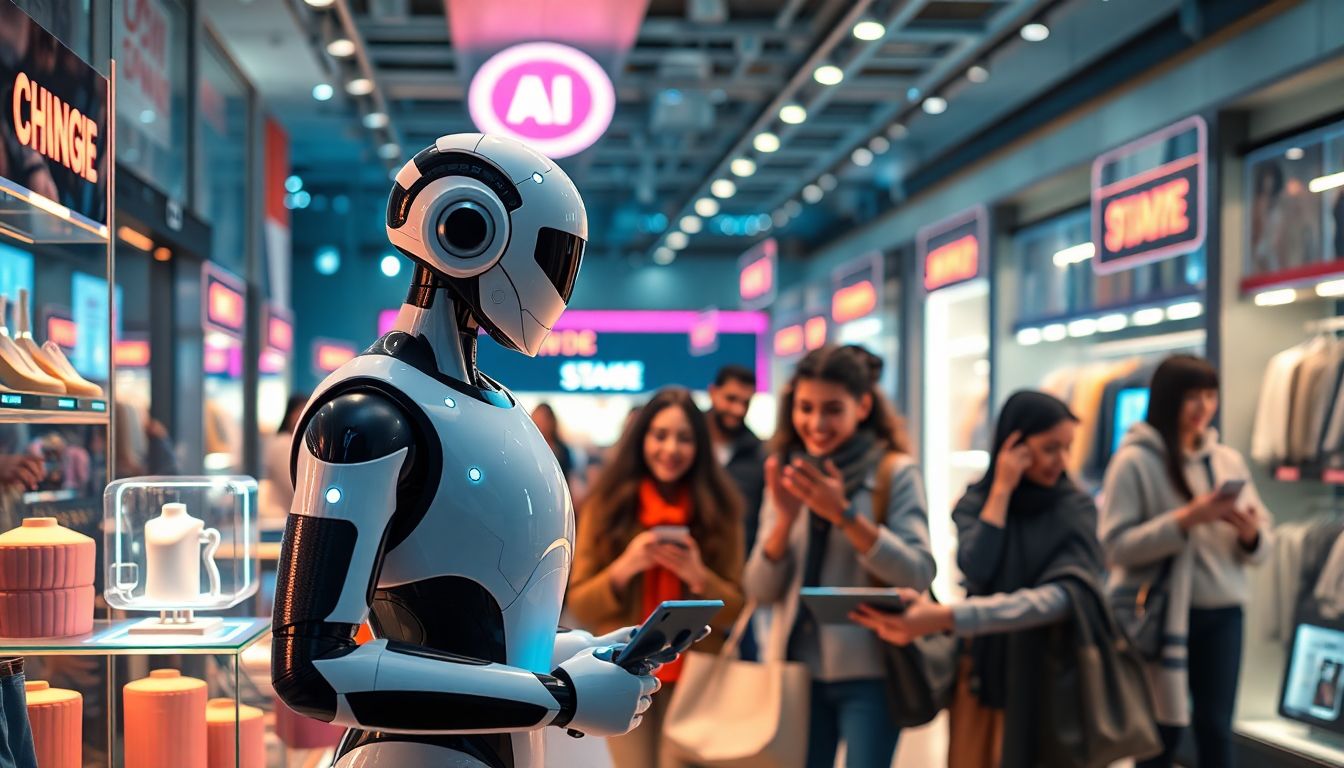
AI in Ecommerce Examples: Transforming Retail Through Innovation
Introduction
Artificial intelligence is changing the way we shop online. More ai in eCommerce stores now use AI to personalize experiences, speed up operations, and connect better with customers. Companies see AI as a tool to boost sales and stay ahead of the competition. As investment in AI grows, the future of online shopping is set to become even smarter and more efficient.
Understanding AI in Ecommerce
What Is AI and How Is It Used Ai in Ecommerce?
Artificial intelligence refers to machines that can think and learn like humans. Technologies like machine learning, natural language processing (NLP), and computer vision play big roles in ecommerce. These tools help online stores analyze data, understand customer needs, and automate tasks to make shopping easier.
Benefits of AI in Ecommerce Businesses
Using AI offers many advantages. It personalizes what shoppers see, making their experience unique. AI also helps increase sales by offering better product suggestions. It reduces costs through automation and streamlines stock management and delivery. Overall, AI makes online stores more efficient and customer-friendly.
Real-World Examples of AI in Ecommerce
Personalization Engines
Big names like Amazon and Netflix rely on AI to recommend products or shows you might like. AI studies your browsing, purchase history, and preferences. This means you see items tailored just for you. As a result, customers buy more and stay longer on these platforms.
Chatbots and Virtual Assistants
Many brands, such as Sephora and H&M, now use AI chatbots. These bots understand your messages and help with questions instantly. They can assist with finding products, tracking orders, or answering common questions at any time. This reduces wait times and cuts costs on customer service.
Visual Search and Computer Vision
Imagine shopping with a photo. Pinterest, Lowe’s, and ASOS use AI to let customers find products through images. AI-powered image recognition makes shopping faster because users can upload a picture of what they want. This makes product discovery easier and less frustrating.
ai in ecommerce nventory and Supply Chain Optimization
AI helps stores like Zara and Alibaba predict how much stock is needed. It looks at trends, weather, and buying habits to order just the right amount. This helps avoid overstock or shortages, making delivery faster and more reliable.
ai in ecommerce Dynamic Pricing Strategies
Both Amazon and airlines use AI to set prices daily. Machine learning models change prices based on demand, competition, or season. This helps stores stay competitive and improve profit margins while giving customers better deals.
Fraud Detection and Security
Online marketplaces like Shopify and eBay deploy AI to fight fraud. AI spots unusual activities or transactions early, stopping scams before they cause harm. This builds trust and keeps customers safe while lowering the risk of chargebacks.
Challenges and Ethical Considerations
Data Privacy and Security
Collecting data is key for AI, but keeping it safe is vital. Regulations like GDPR and CCPA protect customer info. Businesses must balance personalization with privacy to avoid losing trust.
Bias and Fairness in AI Algorithms
AI can sometimes favor certain groups unintentionally. That’s why fairness checks are important. Making sure AI treats everyone equally leads to better results and protects reputations.
Implementation Barriers
Adding AI isn’t always simple. Costs, tech skills, and old systems can slow adoption. Small businesses might find it hard to afford and integrate AI tools. Partnering with AI providers or using ready-made solutions can help now.
Actionable Tips for Ecommerce Businesses
- Focus on AI projects that most impact your customers.
- Gather good quality data and keep it organized.
- Start small with pilot programs before expanding.
- Work with AI vendors or use easy-to-access SaaS tools.
- Keep an eye on AI results and update algorithms regularly.
Conclusion
AI is shaping the future of ecommerce in powerful ways. From personal shopping to smarter inventory and better security, its applications help businesses grow. Companies that embrace AI now will gain a big edge over competitors. Expect AI to become even more integrated into online shopping soon, making every experience smoother and more personalized.
Key Takeaways
- AI boosts personalization, customer support, and supply chain management.
- Companies like Amazon and Sephora show how AI delivers real results.
- Successful AI use depends on good planning, ethical choices, and ongoing tweaks.
Get ready: AI is changing ecommerce forever. Staying ahead means using these tools well and keeping an eye on what’s next.

